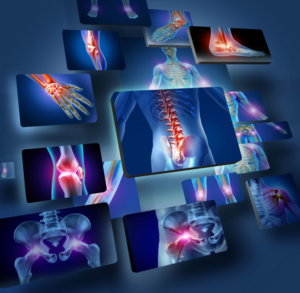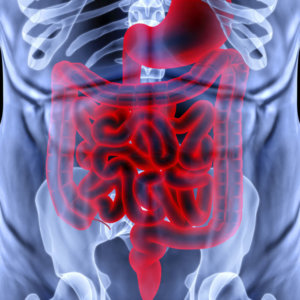 A lot of people mistake inflammation as damage to the body. While inflammation does result from damage, the inflammation itself is actually one of your body’s many defense mechanisms.
A lot of people mistake inflammation as damage to the body. While inflammation does result from damage, the inflammation itself is actually one of your body’s many defense mechanisms.
Inflammation can arise from explicit damage to the body in the form of burns, cuts, and breaks; on the other hand, it can also arise as a means of fighting off infection from bacteria, fungi, or viruses.
Inflammation is one of the most basic and vital functions of the immune system. It can be painful in itself, but much like a fever, it causes discomfort only as a byproduct of its attack on an outside invader.
Our inflammation treatment in Charlotte is rooted in an understanding of what causes inflammation, as well as the triggers that can cause it to become chronic.
What Causes Inflammation?
When the body senses an area that has become or is becoming damaged, white blood cells release protective chemicals into the bloodstream or tissue. Blood flow also increases to the injured or infected area.
What Are the Symptoms of Inflammation?
Redness and warmth are the most common and immediate symptoms. Sometimes, chemicals released by white blood cells can cause fluid to accumulate in the tissue, which then begins to swell.
Look for:
- Pain. This can be continuous or only occur when the area is touched. The pain of inflammation is usually a burning or electric sensation.
- Redness. This is the result of increased blood supply to the damaged or infected area.
- Warmth. This is also the result of increased blood supply.
- Swelling. The buildup of fluids in the affected area is a condition known as edema.
- Loss of function. Inflamed joints are more difficult to move; inflammation in the lungs causes breathing problems; inflammation in the nostrils leads to a loss of smell; etc.
All of this being said, inflammation can sometimes be “silent”; in other words, not producing any noticeable symptoms whatsoever.
Inflammation as a result of something minor (a burn, scrape, or mild infection) should cause no more alarm than a fever would cause if you were down with a cold. It’s part of the healing process.
That said, if inflammation doesn’t go away, or you’re noticing symptoms that are making it difficult to live life normally, our Charlotte inflammation treatment can help.
When Inflammation Becomes Chronic
 Chronic inflammation manifests as one of many, or comorbid with many, autoimmune diseases.
Chronic inflammation manifests as one of many, or comorbid with many, autoimmune diseases.
The reason inflammation becomes chronic is that the body mistakes its own tissues and healthy bacteria as dangerous foreign invaders; the body attacks itself, rather than an outside enemy.
There are many theories on why this happens. One such theory is molecular mimicry, defined as: the theoretical possibility that sequence similarities between foreign and self-peptides are sufficient to result in the cross-activation of autoreactive T or B cells by pathogen-derived peptides.
In other words, the molecular structure of an invading organism and the tissues of the body itself are similar enough to confuse the body into unleashing an attack on itself.
Our inflammation treatment in Charlotte is well-informed by this theory. For more information, see this page.
Natural Chronic Inflammation Treatment in Charlotte
Our treatment is catered to each individual. We take your genes, environmental situation, and lifestyle into account. Depending on a number of factors, our Charlotte inflammation treatment may consist of one or more of the following:
Infection Testing
You’d be surprised by the amount of things with which humans can become infected – more than science has categorized, in fact.
Infection testing can determine whether or not you’ve been infected with:
- Chemicals
- Bacteria
- Mold
- Fungi
- Toxins
Eliminating certain foods from your diet
 There are many foods that are known to trigger inflammation, including:
There are many foods that are known to trigger inflammation, including:
- Sugar and high-fructose corn syrup
- Vegetable and seed oils
- Artificial trans fats
- Alcohol
- Processed meat
- Refined carbohydrates
These should be eliminated from your diet.
Dietary additions
The following have been shown to be great at reducing inflammation:
- Turmeric (curcumin)
- Green tea
- White willow bark
- Maritime pine bark (pycnogenol)
- Chili peppers (capsaicin)
- Frankincense (Boswellia serrata)
- Black pepper
- Resveratrol
- Cat’s claw (Uncaria tomentosa)
- Rosemary
- Cloves
- Ginger
- Cinnamon
There are many ways in which our inflammation treatment in Charlotte can be catered to your specific condition. If you have questions, schedule a free qualification call.





Latest from the Blog
The Death of Red Dye #3
January 15, 2025What Is Red Dye No. 3? Red Dye No. 3, or Erythrosine, is a synthetic food color derived from coal tar. It was first approved by the FDA in the 1950s and quickly became one of the most popular artificial colors in food and cosmetics. Red Dye No. 3 was used in everything from candies, […] Read more
Latest from the Blog
Do You Know What Is In Your Protein Powder?
What’s Really in Your Protein Powder? Understanding the Risks Protein powders are a staple in many health-conscious diets, from athletes seeking muscle recovery to those simply aiming to boost their daily protein intake. With a wide variety of options available, choosing the right one can feel overwhelming. However, recent findings have raised concerns about what’s […] Read more